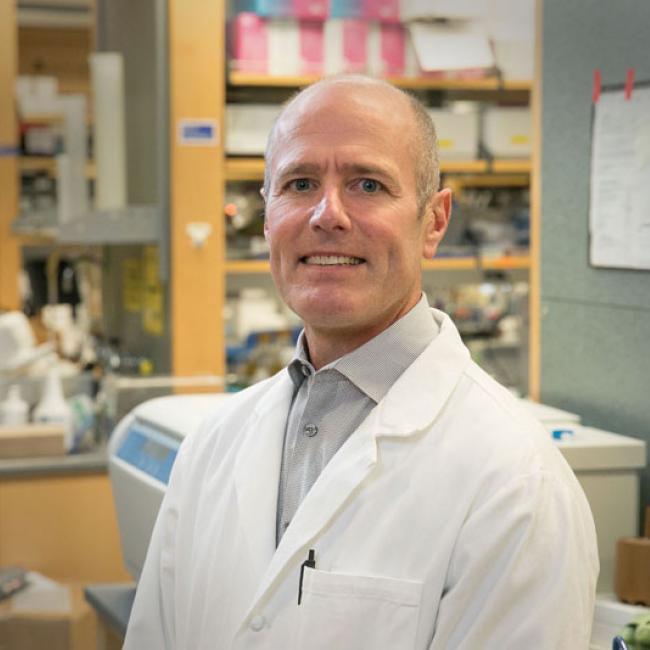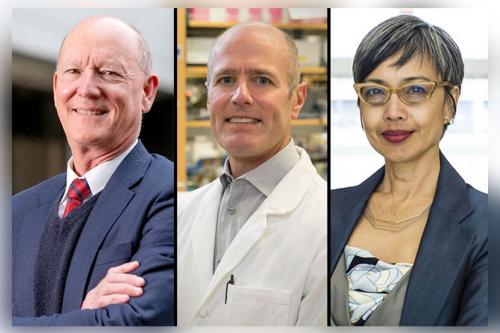
3 UCLA faculty members elected to the National Academy of Medicine
UCLA neurologist S. Thomas Carmichael, lung specialist Paul W. Noble and public health pioneer Ninez A. Ponce have been elected to the National Academy of Medicine, the academy announced today. The three faculty members join 97 other members from across the U.S. and the world elected this year.
One of the highest honors in the fields of health and medicine, election to the academy recognizes individuals who have demonstrated outstanding professional achievement and commitment to service. New members are chosen by current members through a process that recognizes major contributions to the advancement of medical sciences, health care and public health.
“I am deeply honored to welcome these extraordinary health and medicine leaders and researchers into the National Academy of Medicine,” said Victor J. Dzau, president of the academy. “Their demonstrated excellence in tackling public health challenges, leading major discoveries, improving health care, advancing health policy and addressing health equity will critically strengthen our collective ability to tackle the most pressing health challenges of our time.”
The National Academy of Medicine — one of three congressionally chartered academies, along with the National Academy of Sciences and National Academy of Engineering — provides independent, objective analysis and advice to the nation on critical issues in health, science, medicine and related policy.
S. Thomas Carmichael, M.D., Ph.D.
Professor of neurology and neurobiology, David Geffen School of Medicine at UCLA
Chair of neurology department, UCLA Health
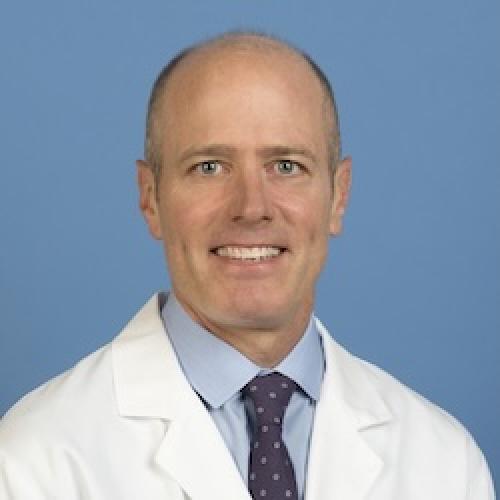
Carmichael conducts transformational research on how the brain repairs itself after stroke and other injuries and translates these discoveries into novel therapeutic approaches, including stem cell therapies and rehabilitation drugs, that enhance recovery.
His laboratory has identified signals the brain sends that lead to progressive injury and block repair and recovery in stroke and in vascular dementia — the second leading cause of dementia. This work has led to the discovery that strokes create partially damaged neural circuits that can be restored to normal functioning with experimental drugs, fundamentally changing how scientists approach stroke recovery.
Among his most significant contributions, Carmichael and his team discovered the role of the CCR5 gene in stroke recovery and developed a clinical trial testing the FDA-approved drug maraviroc (marketed as Selzentry in the U.S.) to enhance recovery in stroke patients. More recently, his laboratory identified DDL-920, the first drug shown to fully reproduce the effects of physical rehabilitation in mouse models by restoring brain connections lost after stroke.
“I am honored by this recognition from the National Academy of Medicine,” said Carmichael, who holds UCLA’s Frances Stark Chair in Neurology. “This reflects the dedication of my research team and our clinical colleagues who work together to translate laboratory discoveries into new treatments for stroke patients. Our approach has always been bidirectional — advances in the lab lead to clinical trials, while interactions with patients point to new research directions.”
Carmichael was a Howard Hughes Medical Institute postdoctoral fellow at UCLA before joining the faculty in 2001. He is an elected member of the Association of American Physicians, president-elect of the American Neurological Association and past president of the American Society for Neurorehabilitation. He has led and published in allied fields of science and academic medicine administration and physician-scientist training.
► Read more about Carmichael’s election on the UCLA Health website.
♦ ♦ ♦
Paul W. Noble, M.D.
Professor in residence of medicine, David Geffen School of Medicine at UCLA
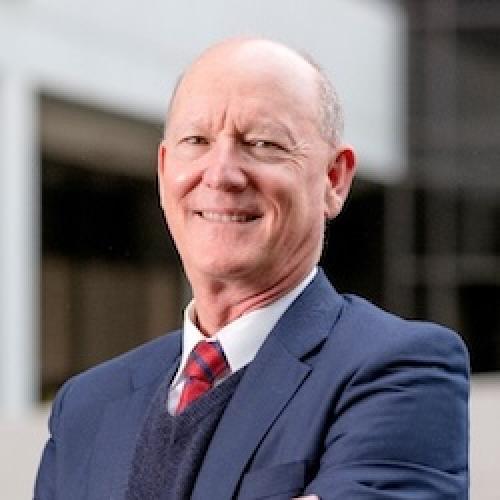
Noble is a physician-scientist specializing in pulmonary fibrosis whose research has focused on the fundamental mechanisms of chronic lung inflammation and fibrosis. His work has been instrumental in transforming idiopathic pulmonary fibrosis from a disease with no effective treatments into one treatable with FDA-approved therapies that extend and improve patients’ lives.
Noble’s research has established specialized care for patients with interstitial lung disease, and over the years, he founded interstitial lung disease clinics at Johns Hopkins University, Yale University and Cedars-Sinai Medical Center, creating centers of excellence that combine cutting-edge research with comprehensive patient care. His involvement in clinical trial design and drug development has directly contributed to bringing new therapeutic options to patients with idiopathic pulmonary fibrosis.
Noble held faculty positions at Johns Hopkins and Yale before joining Duke University in 2006 as chief of the division of pulmonary, allergy and critical care medicine. In 2013, he became chair of the department of medicine and director of the Women’s Guild Lung Institute at Cedars-Sinai Medical Center in Los Angeles. Over the course of his career, he has been widely recognized for his role championing diversity, faculty development and the expansion of quality care to underserved populations.
► Read more about Noble’s election on the UCLA Health website.
♦ ♦ ♦
Ninez A. Ponce, Ph.D., M.P.P.
Director, UCLA Center for Health Policy Research
Principal investigator, California Health Interview Survey
Professor of health policy and management, UCLA Fielding School of Public Health
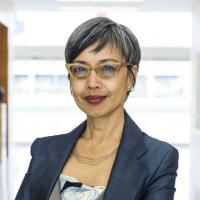
Throughout her career as a researcher and advocate, Ponce has worked to promote data equity in public health and to advance inclusion and representation in data to better address health disparities among underserved communities.
As principal investigator and a founder of the UCLA Center for Health Policy Research’s annual California Health Interview Survey — the largest population-based state health survey in the nation — Ponce has helped pioneer ways to democratize data and put it into the hands of the public in ways that inform, educate and result in grassroots-driven policy change. She led the rationale and implementation of Asian ethnic oversamples and the cultural and linguistic adaptation of the California Health Interview Survey in Cantonese and Mandarin, Korean, Vietnamese and Tagalog to capture participation from linguistically isolated communities. The survey, the academy noted, has served as a model for data collection among state and national agencies.
“It is a tremendous honor to be elected to the National Academy of Medicine and join an esteemed group that has shaped the field of health and health care,” said Ponce, who holds UCLA’s Fred W. and Pamela K. Wasserman Chair in Health Policy and Management. “To me, this is a leadership call to action. We need data that is representative of every population and evidence-based analysis to inform effective policymaking and I am committed to advancing the academy’s vision of health for everyone, everywhere.”
Ponce has received numerous awards recognizing her teaching, leadership and commitment to community-engaged research, including the Elizabeth Fries Health Education Award from the CDC Foundation and the James F. and Sarah T. Fries Foundation, the Inclusive Voices Award from the American Association of Public Opinion Research and the People’s Researcher award from Asian Health Services. She was a member of the data disaggregation committee for the White House Initiative on Asian Americans, Native Hawaiians and Pacific Islanders.
Ponce is an associate editor for diversity, equity and inclusion at JAMA Health Forum and sits on the editorial boards of the journals Milbank Quarterly, Health Services Research and Health Affairs Scholar. An elected member of the National Academy of Social Insurance, she served on the board of scientific counselors for the National Center for Health Statistics and is currently on the board of AcademyHealth.
► Read more about Ponce’s election on the UCLA Center for Health Policy Research website.
